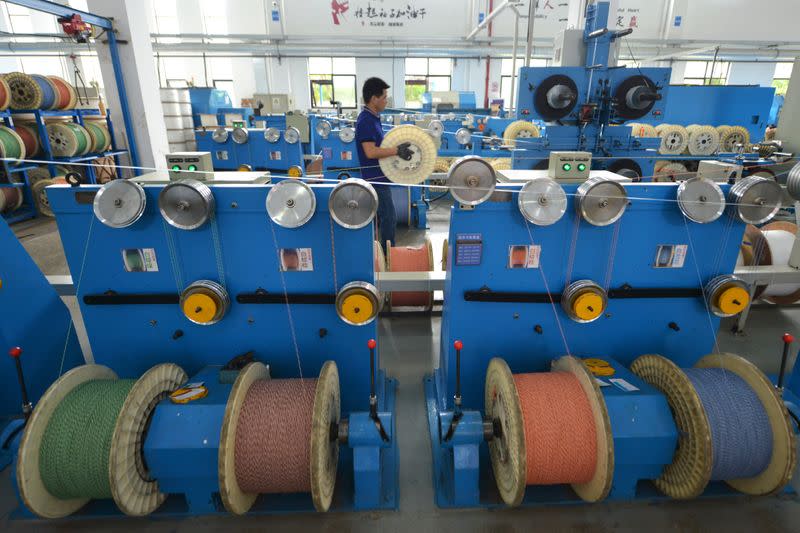China's factory output posts first increase for 2020 but consumption still weak
By Kevin Yao
BEIJING (Reuters) - China's industrial output rose 3.9% in April from a year earlier, data showed on Friday, expanding for the first time this year as the world's second-largest economy slowly emerged from its coronavirus lockdown.
That was faster than the 1.5% increase forecast in a Reuters poll on analysts and followed a 1.1% fall in March.
After months of lockdowns, China is slowly reopening its economy as the coronavirus outbreak on the mainland has come under control.
However, it continues to face major challenges in recovery as the pandemic has now swept the globe, affecting other major economies and trading partners.
The National Bureau of Statistics said China's economy was recovering but still faced many challenges as the coronavirus spread globally.
Louis Kuijs, Head of Asia Economics at Oxford Economics, expects a global recession will weigh on China's recovery.
"But China's growth now relies largely on domestic demand," he said. "We expect the improvement in consumption momentum to continue, albeit from a weak starting point and gradually, while we see investment outperforming consumption, benefiting from more significant policy support."
China's economy contracted 6.8% in the first quarter from a year earlier, shrinking for the first time since at least 1992.
Producer prices saw their sharpest fall in four years earlier this week, showing weakening industrial demand.
Many Chinese factories are grappling with slashed or cancelled overseas orders after reopening as global demand stays tepid.
While the country's exports saw an unexpected rebound in April, driven in part by demand for medical supplies, imports saw a sharper-than-expected dive, signalling weak domestic demand.
Manufacturing surveys in April showed a collapse in export orders.
China's central bank said on Sunday that it would step up policy support for the economy, which would include help for small and medium-sized enterprises.
Consumption remained weak with retail sales falling 7.5% in April, faster than a forecast 7.0% decline.
Sales tumbled in the first three months of the year as shops, restaurants and other places with crowds closed across the country.
Fixed asset investment fell 10.3% in January-April, compared with a forecast 10.0% fall and a 16.1% decline in January-March.
Private sector fixed-asset investment, which accounts for 60% of total investment, fell 13.3% in January-April, compared with an 18.8% decline in the first three months of the year.
(Reporting by Kevin Yao, Huizhong Wu and Gabriel Crossley; Editing by Sam Holmes)


